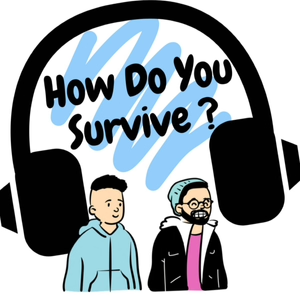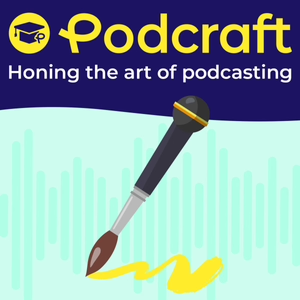
Foliage Houseplants, Fertilizing, Cleaning Leaves, Aphids & ZZ Plant
02/19/21 • 78 min
Houseplants are as popular as ever right now, with many people spending a lot more time at home and craving the warmth and natural touches plants bring. Sometimes, us houseplant enthusiasts can even go a little overboard, bringing too many plants home and sometimes giving those plants a little too much TLC.
In this episode of Granite State Gardening, Lake Street Garden Center greenhouse manager Nichole Keyes joins UNH Extension’s Emma Erler and Nate Bernitz to exchange tips for choosing the right houseplants for your home and helping your indoor garden thrive. They also get into their personal favorites, houseplant shopping tips and predictions for popular houseplants in 2021.
- Featured question: fertilizing houseplants
- Featured plant: ZZ plant (Zamioculcas zamiifolia)
- Closing tip: Cleaning houseplant leaves
- IPM tip: Controlling aphids
Connect with us at @askunhextension on Facebook, Instagram and Twitter and subscribe to the monthly Granite State Gardening newsletter. Email us questions, suggestions and feedback at [email protected]
Background reading:
UNH Extension’s houseplant resources: https://extension.unh.edu/tags/house-plants
Lake Street Garden Center: https://www.lakestreet.com/
TRANSCRIPT
Nate B 0:00
Welcome to the Granite State gardening podcast from UNH Cooperative Extension. On today's show, Emma and I speak with Nicole Keyes, the greenhouse manager at Lake St. garden center in Salem, New Hampshire. Our conversation is wide ranging, including assessing your home's growing conditions, best growing practices, how to be a smart shopper, personal favorites and predictions for hot foliage houseplants and 2021. By the end of this episode, I guarantee you'll be inspired to grow some new plants because Emma and Nicole's enthusiasm and knowledge just rubs off. And y'all have a few new tips and tricks for your next house plant shopping outing to your favorite local garden center.
Greetings, Granite State gardeners. I'm Nate bernitz joined as always by horticulturist and UNH extension field specialist, Emma Erler. And today by Nichole keyes.
Nicole, I'm excited to hear some industry insider knowledge from you today. But I'd love to start by getting to know you. Tell us a little bit about yourself.
Nicole K 1:14
I work at Lake Street garden center in Salem, New Hampshire. It's a small family owned business. It's been open since the 70s. I'm born and raised from Salem. So I used to go there with my grandfather, like as a child walking through the greenhouses. And when I was old enough to work he he knew the owner pretty well and kind of like gave me a little push and was like go ask for a job. Because I knew I was interested in plants and I love the outdoors. And I'm definitely a nature girl. So I started as a cashier there and just I didn't even know the difference between a Petunia and a philodendron. Back then just being there and and starting to learn I really my passion kind of developed. I've been there 18 years on and off through my life. So it's been a pretty cool journey. It's it's pretty unique that to be a part of still like family run business.
Nate B 2:10
Well, I know Emma shares your passion for scientific names for for the Latin. So let's start there. Why is that important?
Emma E 2:20
Well, I guess I'll say it's, it's really important because common names can be misleading. It can be misguiding there. In many cases, there are multiple different common names that can be applied to the same plant. And in some cases, two different plants will have the same common name. So if you're using the Latin name, you're being as precise as you can possibly be. And any gardener, any botanist that you're talking to, is going to know exactly which plant you're speaking of and use that Latin name versus a common name. Because to a certain extent that can really be regional as well with what people will call a certain plant.
Nate B 3:01
Nicole, do you find that customers sometimes come in and they're asking about one plant, but maybe thinking of another? Or like really kind of actually practical examples where this really comes into play?
Nicole K 3:15
Absolutely. I think it's something I deal with on a regular basis and echo everything that Emma said, it's a lot easier for me, when a customer comes in knowing what plant plant they they're, that they're referring to. And like I've noticed, too, that with the trends online today, and like there's a lot of online sales going on all over the internet, and a lot of people are making up common names or coming up with cooler more funky names for plants and customers will come in like, do you h...
Houseplants are as popular as ever right now, with many people spending a lot more time at home and craving the warmth and natural touches plants bring. Sometimes, us houseplant enthusiasts can even go a little overboard, bringing too many plants home and sometimes giving those plants a little too much TLC.
In this episode of Granite State Gardening, Lake Street Garden Center greenhouse manager Nichole Keyes joins UNH Extension’s Emma Erler and Nate Bernitz to exchange tips for choosing the right houseplants for your home and helping your indoor garden thrive. They also get into their personal favorites, houseplant shopping tips and predictions for popular houseplants in 2021.
- Featured question: fertilizing houseplants
- Featured plant: ZZ plant (Zamioculcas zamiifolia)
- Closing tip: Cleaning houseplant leaves
- IPM tip: Controlling aphids
Connect with us at @askunhextension on Facebook, Instagram and Twitter and subscribe to the monthly Granite State Gardening newsletter. Email us questions, suggestions and feedback at [email protected]
Background reading:
UNH Extension’s houseplant resources: https://extension.unh.edu/tags/house-plants
Lake Street Garden Center: https://www.lakestreet.com/
TRANSCRIPT
Nate B 0:00
Welcome to the Granite State gardening podcast from UNH Cooperative Extension. On today's show, Emma and I speak with Nicole Keyes, the greenhouse manager at Lake St. garden center in Salem, New Hampshire. Our conversation is wide ranging, including assessing your home's growing conditions, best growing practices, how to be a smart shopper, personal favorites and predictions for hot foliage houseplants and 2021. By the end of this episode, I guarantee you'll be inspired to grow some new plants because Emma and Nicole's enthusiasm and knowledge just rubs off. And y'all have a few new tips and tricks for your next house plant shopping outing to your favorite local garden center.
Greetings, Granite State gardeners. I'm Nate bernitz joined as always by horticulturist and UNH extension field specialist, Emma Erler. And today by Nichole keyes.
Nicole, I'm excited to hear some industry insider knowledge from you today. But I'd love to start by getting to know you. Tell us a little bit about yourself.
Nicole K 1:14
I work at Lake Street garden center in Salem, New Hampshire. It's a small family owned business. It's been open since the 70s. I'm born and raised from Salem. So I used to go there with my grandfather, like as a child walking through the greenhouses. And when I was old enough to work he he knew the owner pretty well and kind of like gave me a little push and was like go ask for a job. Because I knew I was interested in plants and I love the outdoors. And I'm definitely a nature girl. So I started as a cashier there and just I didn't even know the difference between a Petunia and a philodendron. Back then just being there and and starting to learn I really my passion kind of developed. I've been there 18 years on and off through my life. So it's been a pretty cool journey. It's it's pretty unique that to be a part of still like family run business.
Nate B 2:10
Well, I know Emma shares your passion for scientific names for for the Latin. So let's start there. Why is that important?
Emma E 2:20
Well, I guess I'll say it's, it's really important because common names can be misleading. It can be misguiding there. In many cases, there are multiple different common names that can be applied to the same plant. And in some cases, two different plants will have the same common name. So if you're using the Latin name, you're being as precise as you can possibly be. And any gardener, any botanist that you're talking to, is going to know exactly which plant you're speaking of and use that Latin name versus a common name. Because to a certain extent that can really be regional as well with what people will call a certain plant.
Nate B 3:01
Nicole, do you find that customers sometimes come in and they're asking about one plant, but maybe thinking of another? Or like really kind of actually practical examples where this really comes into play?
Nicole K 3:15
Absolutely. I think it's something I deal with on a regular basis and echo everything that Emma said, it's a lot easier for me, when a customer comes in knowing what plant plant they they're, that they're referring to. And like I've noticed, too, that with the trends online today, and like there's a lot of online sales going on all over the internet, and a lot of people are making up common names or coming up with cooler more funky names for plants and customers will come in like, do you h...
Previous Episode

Planning Spring Vegetable Gardens (part 2), Container Gardening, Malabar Spinach & Staking Tomatoes
Show Notes
In this bonus episode of Granite State Gardening, New Hampshire Agricultural Experiment Station researcher Becky Sideman, Emma Erler and Nate Bernitz continue their conversation from the last episode, getting into working with seed catalogs to understand the information and how it’s organized as well as how to make selections that will thrive in your garden. We get into the weeds of concepts including organic, seed treatments, GMOs, and disease resistance, as well as segments on selecting varieties for container gardening, staking tomatoes, and growing Malabar spinach (Basella alba). Part 1 of this conversation, titled Planning Spring Vegetable Gardens, Soil Temperature, Nasturtiums & Fencing, was packed with experience and insights for garden planning, and we recommend listening to it before jumping into this episode.
Featured question: What are the best varieties for growing veggies in containers?
Featured plant segment: Malabar spinach (Basella alba)
Closing gardening tip: tomato staking
Connect with us at @askunhextension on Facebook, Instagram and Twitter and subscribe to the monthly Granite State Gardening newsletter.
Email us questions, suggestions and feedback at [email protected]
Background reading:
Growing Vegetables in Containers: https://extension.unh.edu/resource/growing-vegetables-containers-fact-sheet
Applied UNH Extension Research: https://extension.unh.edu/tags/applied-vegetable-fruit-research-new-hampshire
Pruning Tomato Plants: https://extension.unh.edu/resource/pruning-tomato-plants-fact-sheet
Preventing Garden Diseases: https://extension.unh.edu/resource/10-easy-steps-prevent-common-garden-diseases-fact-sheet
Managing Garden Pests with IPM: https://extension.unh.edu/blog/garden-IPM
Exciting Veggie Varieties Q&A: https://extension.unh.edu/blog/exciting-veggie-varieties-qa
UNH Sideman Lab on Instagram: https://www.instagram.com/unh_sidemanlab/
Transcription by Otter.ai
Nate Bernitz 00:01
Welcome to the Granite State Gardening podcast from UNH Cooperative Extension. On today's show, we continue our conversation with Becky Seidman: UNH Extension specialist, professor of sustainable agriculture and food systems, and researcher at the New Hampshire Agricultural Experiment Station. If you haven't listened to Part one yet, which was called "planting spring vegetable garden soil temperature nasturtiums and fencing", you'll want to check that out before listening to this episode. We'll talk about using the wealth of information provided on seed packets and in seed catalogs, not only to understand it, but how to use it to choose the right varieties and succeed with the varieties you choose. Greetings Granite State gardeners, I'm Nate Bernitz, joined as always by horticulturist and UNH extension field specialist, Emma Erler. And again by Becky Seidman. We pick up our conversation after talking about garden planning systems and strategies. Now, we'll get into talking about tips and solutions for working with seed catalogs, understanding the information provided for us and how it's organized. So rather than get overwhelmed, we can get informed and find varieties that help us bring our garden plans to life. Emma, let's jump back in with what you view as some of the most important sections to focus on when you're looking at a variety of listing and a seed catalog.
Emma E 01:35
I'd say one thing I'm looking at, which is always going to be on there is the days to maturity. So if this if I'm ordering from companies that are out of the Northeast, you should I can probably assume that what I'm going to grow as long as I am planting on time, I'm going to be able to get a harvest. But you know, depending on when you're going to be able to get things in the ground, let's say it mig...
Next Episode

Pruning, Topping & Staking Trees & Shrubs, plus Witch Hazel Appreciation
Every homeowner knows they should prune, but beyond that, there’s a lot of confusion. Making things worse, there are examples all around us of poor pruning: fall snipping, summer shearing, tree topping, the list of pruning transgressions goes on and on. In this episode of Granite State Gardening, UNH Extension’s Emma Erler and Nate Bernitz share proven tips and solutions for approaching the ever intimidating and often-counterintuitive task of pruning. Come for the accessible science, stay for the demystifying banter. Once you learn how to prune, you’ll never see the trees and shrubs all around you the same.
Featured question: Can trees be topped to reduce their height?
Featured plant segment: Vernal witch hazel (Hamamelis vernalis)
Closing gardening tip: Staking trees
Background reading:
It’s Pruning Season article, with information about upcoming events: https://extension.unh.edu/pruningseason
March 17 live event with Emma and Nate on Pruning: https://extension.unh.edu/events/pruning-ornamental-trees-and-shrubs-online
Basics of Pruning Trees and Shrubs fact sheet: https://extension.unh.edu/resource/basics-pruning-trees-and-shrubs-fact-sheet
Pruning Deciduous Trees fact sheet: https://extension.unh.edu/resource/pruning-deciduous-trees-fact-sheet
Pruning Hydrangeas fact sheet: https://extension.unh.edu/resource/pruning-hydrangeas-fact-sheet
Science of Pruning webinar Q&A: https://extension.unh.edu/blog/science-pruning-qa
Cleaning and Sharpening Pruners: https://extension.unh.edu/blog/how-clean-and-sharpen-your-pruners
TRANSCRIPT
by Otter.ai
Nate Bernitz 00:00
Welcome to the Granite State gardening podcast from UNH Cooperative Extension. On today's show, we dive into the world of pruning. At the top of the show, I want to put in a plug for a series of online events we're offering on this very topic. The first is on March 9 on pruning fruit trees, then on March 11, on pruning blueberries on March 15, it's burning raspberries, blackberries and grapes. And finally on March 17, ornamental pruning. If this episode leaves you with questions, join us on March 17. To ask me those questions live. These four events will all be streamed for free on our Facebook page, ask UNH extension. And I'll play host and moderator speaking with extension specialists including Emma and Becky Seidman, who you know from our vegetable garden planning episodes. Check the show notes of this podcast for the details. And speaking of the show notes, we have links to several parenting resources Emma has written herself and one of the things I appreciate most about these resources are the hand drawn diagrams Emma has done which really help illustrate these concepts. Greetings Granite State gardeners. I'm Nate bernitz. co host with me earlier of the Granite State gardening podcast a production of UNH extension. Today we're talking about pruning and specifically pruning ornamental trees and shrubs. So not the trees and shrubs that grow edible fruits because we're going to devote a whole other episode to printing those up. Now today we're talking about pruning landscape favorites like hydrangea, lilacs, Rhododendron, and well you get the idea. You may refer to pruning as trimming or cutting, but for today, we'll use the word pruning. Our goal here is for you to feel confident about pruning, and understand just a bit about how plants actually grow and respond to cuts, you're going to find that is really helpful. Inevitably pruning is something that takes practice and experience as well as an understanding of how particular plants grow and what you'd like them to actually look like as the real expert here. So I hope you don't mind if I learn a bit right along with you. Okay, let's get into it.
Emma E 02:29
Can trees be topped to reduce their height. That's this episode's featured question. Topping a tree is the cutting back of large branches and mature trees, cutting them to Stubbs trees are often top because they're perceived as being too tall to be safe. This fear is largely unjustified though, as a healthy tree we'll have a root system that is adequate to support it. Topping has the potential to harm trees and actually make them more prone to breakage. Trees respond t...
If you like this episode you’ll love
Episode Comments
Generate a badge
Get a badge for your website that links back to this episode
<a href="https://goodpods.com/podcasts/granite-state-gardening-356032/foliage-houseplants-fertilizing-cleaning-leaves-aphids-and-zz-plant-51417243"> <img src="https://storage.googleapis.com/goodpods-images-bucket/badges/generic-badge-1.svg" alt="listen to foliage houseplants, fertilizing, cleaning leaves, aphids & zz plant on goodpods" style="width: 225px" /> </a>
Copy




